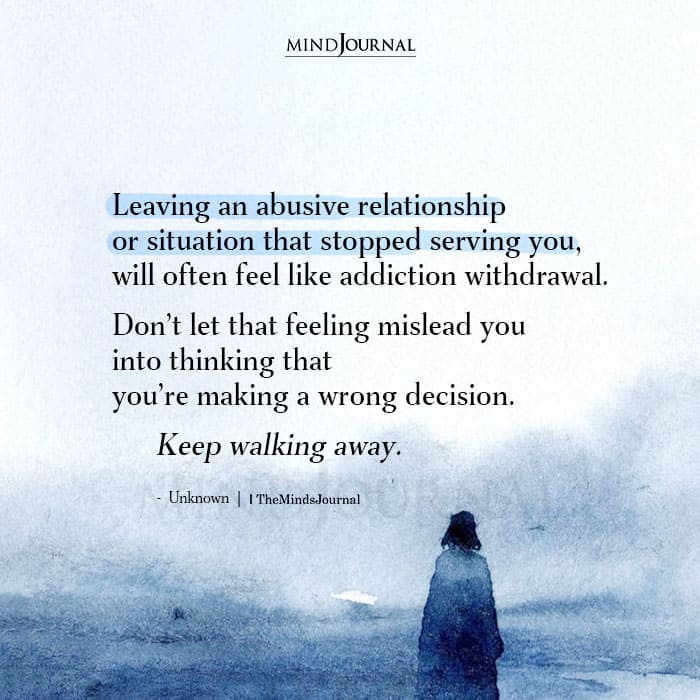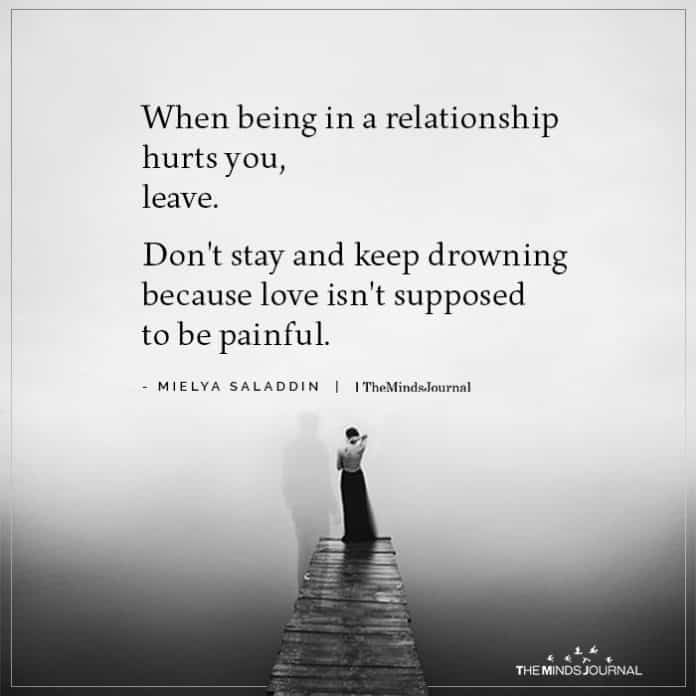Ending a relationship with a narcissist is not a very easy thing to do, to be honest. However, ending a narcissistic relationship is important if you want to live a happy and sane life.
In order to achieve this goal, it’s crucial to know the steps for leaving an abusive relationship. Let’s find out how to end an abusive relationship and how to leave a narcissistic relationship.
Key Points
- Leaving an abusive relationship is often the most dangerous time for a victim, as it is when the abuser fears they are losing control.
- While not all people with NPD are abusive, if your abuser has narcissistic traits, they could be capable of post separation abuse.
- Taking steps to protect yourself can help decrease the impact of their retaliation while helping to keep you safe.
Few breakups are pain-free, but the cognitive dissonance when preparing to end an abusive relationship can feel freeing yet confusing and disorienting.
Some survivors wonder if leaving is the right choice or if they were imagining all these bizarre, toxic events that made no sense. It is during these moments of self-doubt that many victims make the mistake of assuming that their abuser will act rationally.
When they assume they are dealing with someone rational, they usually end up poorly equipped to protect themselves during a breakup with someone who is irrational and lacks empathy.
They have no way of knowing what to expect from their ex-partner, who can blindside them with more abusive behavior as retaliation for leaving, abuse that is often much worse than anything experienced during the relationship itself.
Related: How To Leave A Narcissist: 6 Powerful Hacks
Psychological or narcissistic abuse appears unbelievable and far-fetched to those who have not experienced it firsthand. Others are unable to imagine someone treating another human being with such cruelty and often assume victims must be exaggerating.
Going through any breakup is already stressful enough, and many people go through periods of sadness or even depression.
But victims of psychological abuse often don’t have the ability to take time to work through their sadness; they have to defend themselves against an angry ex out for revenge against them for leaving.
When a breakup happens with someone with a personality disorder, like narcissism, they will often leave you paying for every mistake you ever made tenfold: “The ultimate grudge-holder, the narcissist never forgives or forgets. He always remembers how he was bested or slighted, and that just fuels the fire for his vindictiveness” (Streep, 2018).
This is why deciding to leave an unsafe relationship requires more than just leaving: Victims need to make the necessary plans to do so safely.

Safety Planning
When working with clients who are preparing to leave, we work together to create an individualized safety plan. While your safety plan might look somewhat different, here are some of the major things to consider as you prepare to leave.
Protect all living things first and foremost.
Protect children, dependents, family members who live at home or depend on you, animals, and other living things who would be involved.
Take their needs into consideration: What do they need to stay safe? Do they have a place to go, and have you taken custody and other legal aspects into consideration? Consult legal professionals when it comes to child custody.
It is becoming increasingly common to have custody battles over pets or shared animals, so make copies of adoption paperwork, veterinarian bills, or other documentation to be prepared.
Related: When I Had The Courage To Leave My Abusive Relationship
Then, protect important personal belongings.
Focus particularly on items that you need, such as passports, copies of medical documentation, and immigration or legal paperwork.
Someone who wants to hurt you may target the things you love or need the most, so protect whatever your partner knows to be of value to you: sentimental objects, titles to your car, etc.
Next, here are some reminders of the planning steps that victims frequently overlook during their attempts to leave.
20-Point Checklist For Ending A Relationship With A Narcissist
Make check marks as you go, or keep track in a separate list:
- Change passwords to any and all of your email accounts.
- Make copies of house deeds and mortgage information or any shared assets.
- Change beneficiaries of 401K, IRAs, life insurance, etc., if legally able to do so.
- Change social media passwords and delete or unfollow them. Furthermore, do not post anything about them or the relationship on your social media.
- Revoke access to credit cards or bank accounts if legally able to do so. If your economic situation is deeply entangled with your partner’s, such as shared accounts, you may want to consult with a lawyer.
- If you are able, take cash out of the bank and put it in a safe place.
Related: 10 Safety Tips For Domestic Violence
- Change door locks and, if financially able to do so, change wooden doors to steel or another material that cannot be broken down easily.
- Put locks on the windows.
- Change passwords for all online banking of personal accounts.
- Check your credit report and check it again every year. There are several online websites that offer free annual reports. Partners often know each other’s Social Security numbers, and many of my clients have had their ex open up credit cards or new accounts, ruining their credit.
- Remove your ex-partner from any shared accounts, such as Amazon, Uber, etc.

- Block your ex-partner on cash apps, such as PayPal and Venmo, so they cannot see your transactions.
- Change your phone lock screen.
- Create a code word with a friend who can be called or texted in an emergency.
- If able, consider installing a security system at the house.
- Tell the neighbors what is going on, so they can keep an eye out for anything suspicious.
- Make a habit of keeping the car’s gas tank at least half full.
- Unless kids are involved, you might want to change your phone number.
Related: When Leaving A Sociopath: 5 Things You Must Do
- Alter your route to work and other places frequented.
- Make a list of emergency numbers and keep it visible, perhaps taped to the cabinet. Include the police, the nearest domestic violence shelter, or any friends or family who can help. This will help all members of the family find this information when needed in a crisis.
This post was adapted in part from my book, Invisible Bruises, How a Better Understanding of the Patterns of Domestic Violence Can Help Survivors Navigate the Legal System.
If you or someone you love is experiencing domestic violence, call the domestic violence hotline at 1-800-799-7233 or go to thehotline.org.
References:
Streep, Peg. “6 Ways a Narcissist Can Hide in Plain Sight.” Pyschology Today. Nov 8, 2018. Web. Accessed Sep 24, 2022. https://www.psychologytoday.com/gb/blog/tech-support/201811/6-ways-narcissist-can-hide-in-plain-sight.
Written By Kaytee Gillis Originally Appeared On Psychology Today










Leave a Reply